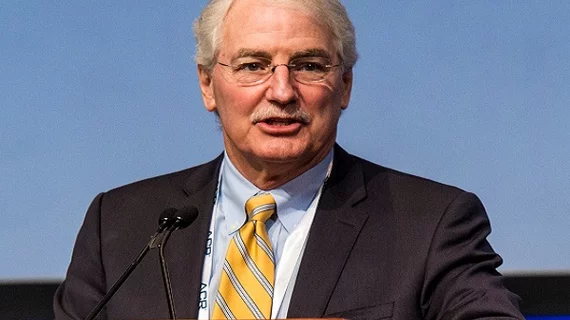American College of Radiology strongly opposes state’s plan to relax doc supervision requirements
The American College of Radiology says it strongly opposes one state’s plans to relax supervision requirements for nonphysicians in certain care settings.
Wyoming Gov. Mark Gordon is considering opting his state out of a Centers for Medicare & Medicaid Services rule stipulating that docs must oversee the work of nurse anesthetists. He’s seeking input from state medical and nursing boards, with the potential change applying to hospitals with 25 beds or less.
However, ACR, alongside the American Society of Anesthesiologists, are urging the state to reconsider, arguing the move is not in Wyomingites’ best interest.
“Removal of this longstanding patient safety standard is unnecessary, degrades patient safety, will not increase access to surgeries and is contrary to the general public’s wishes,” college CEO William Thorwarth Jr., MD, wrote in a Jan. 11 letter to the Wyoming Board of Medicine’s president. “On behalf of ACR, we strongly encourage you to advise Governor Gordon against opting out of the requirement for physician supervision of nurse anesthetists regardless of the number of hospital beds in the facility.”
The anesthesiologist society recently commissioned a survey of Wyoming voters, which found that 75% oppose permitting nurses to administer anesthesia without supervision. Another 93% said they want to be informed before surgery if a hospital does not have an anesthesiologist on hand, the ASA said. Thorwarth and colleagues emphasized that the delivery of such drugs is complex, and while NAs are crucial members of the care team, they possess “half the education” of docs and “dramatically less” clinical training.
Both groups also pointed to a 2017 study, which found that opt-outs do not increase access nor lower Medicare spending.
“There are no cost savings for patients in Wyoming to receive anesthesia care solely by a nurse anesthetist,” Wyoming Society of Anesthesiologists President John Mansell, MD, said Jan. 11. “It provides no benefit and can mean the difference between life and death,” he added later.

